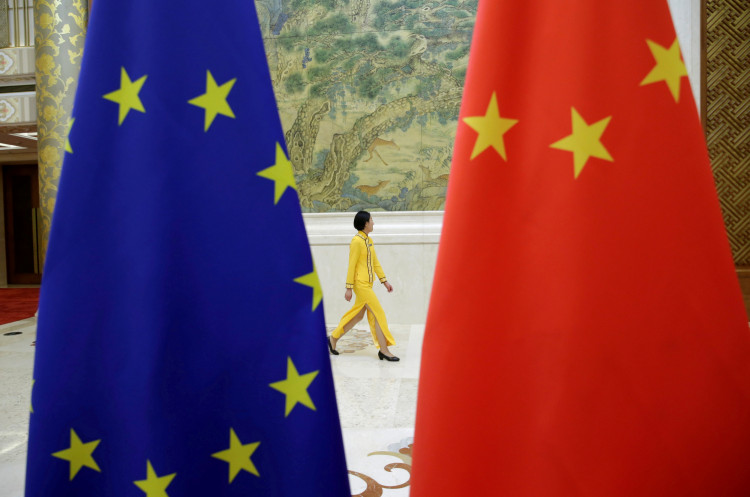The European Union has imposed additional tariffs of up to 38.1% on electric vehicles imported from China, a move that has drawn sharp criticism from Beijing and raised concerns about a potential trade war between the two economic giants. The provisional decision, announced by the European Commission on Wednesday, comes less than a month after the United States quadrupled duties on Chinese EVs to 100%.
According to the Commission's statement, the new tariffs will be applied on top of the existing 10% duty, with varying rates for different Chinese automakers. BYD, the world's largest seller of battery EVs alongside Tesla, will face an additional 17.1% tariff, while Geely, owner of Sweden's Volvo, will be subject to an extra 20% duty. SAIC, another major Chinese EV maker, will be hit with the highest additional tariff at 38.1%.
The decision follows an investigation launched by the Commission in October to determine whether Chinese EV prices are artificially low due to state subsidies, thereby harming European carmakers. The probe provisionally concluded that the EV industry in China "benefits from unfair subsidization, which is causing a threat of economic injury," according to the Commission.
China's Ministry of Commerce swiftly responded to the announcement, accusing the EU of "creating and escalating trade tensions" and vowing to take "all necessary measures to firmly defend the legitimate rights and interests of Chinese companies." The ministry warned that the move would ultimately hurt European consumers.
The tariff hike highlights the increasingly protective stance that both Brussels and Washington are adopting in their trade relations with China. Western officials are growing concerned about the potential loss of jobs and strategically important industries to cheap Chinese imports. The EU is also conducting investigations into China's support for wind turbine companies and solar panel suppliers.
The new tariffs are expected to trigger intense negotiations between Beijing and Brussels to avert a damaging trade war. The EU must decide by November whether to make the tariffs permanent. Analysts at Rhodium Group, a think tank, suggest that China may use a combination of "carrots and sticks" to build opposition to the Commission's case, hoping to gather a sufficiently large group of EU member states to block permanent duties.
China's potential retaliatory measures could include raising tariffs on EU vehicle imports from 15% to 25% or targeting other European exports such as wine and luxury goods. Beijing has already launched an anti-dumping investigation into brandy imported from the EU, which could result in tariffs that would impact French cognac makers.
EU member states are divided on the tariff issue, with France and Spain in favor, while Germany, home to major automakers that rely heavily on the Chinese market, is firmly opposed. German Chancellor Olaf Scholz, speaking on Saturday, warned against protectionism and isolation, stating that such measures would ultimately make everything more expensive and everyone poorer.
The pressure to protect European automakers has intensified as Chinese EVs have become all but priced out of the United States market following President Joe Biden's decision to quadruple import duties on Chinese EVs to 100%. Europe has become the main destination for Chinese EV exports, with the value of EU imports rising from $1.6 billion in 2020 to $11.5 billion last year, according to Rhodium Group.






